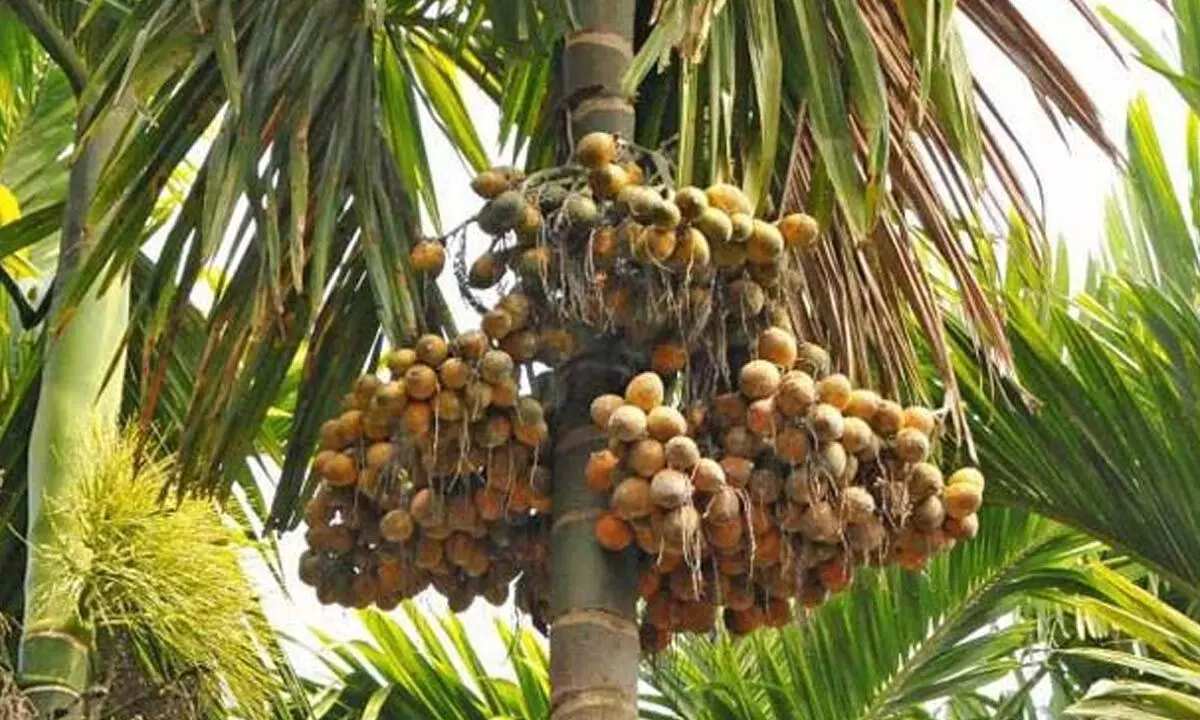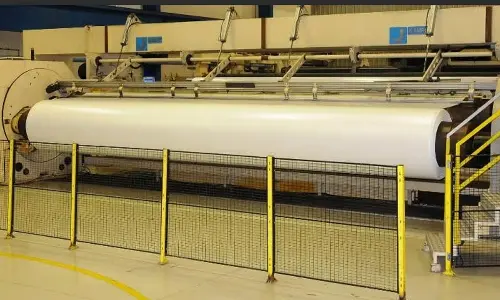DGFT must step in to help areca growers

DGFT must step in to help areca growers
- Over 20 lakh areca growers in the country are facing an uncertain future.
- The areca industry gives direct and indirect employment to over three crore people around the country
Mangaluru: The apex co-operative in the field of Arecanut marketing-The Central Arecanut Marketing and Processing Co-operative Limited (CAMPCO) based in Puttur near Mangaluru, has stated that the recent notification of the Director General of Foreign Trade on the import of 17000 tons of green Arecanut to the country from Bhutan will have no effect on Areca growers in the country.
The notification had stirred up the Areca growers and their marketing set up badly in the last two days after the DGFT notification. The CAMPCO, however, is tizzy about the price fixation for the import of Arecanut into the country. Speaking to The Hans India, President of the multi-state Areca co-operative, Kishore Kumar Kodgi has requested the union commerce minister Piyush Goyal set the base price for the imported Areca at Rs. 360 per kg which will balance the price levels prevailing in the country. The CAMPCO has also averred that if not, it will be detrimental to the vision of Prime Minister Narendra Modi in achieving double income for farmers.
This is not the first time that the DGFT has been approached by the Areca farmers and traders in their demand for the trade deficit balancing act. During the colossal losses that the Arecanut trade endured when the government moved to ban the consumption of Gutkha, 18 per cent of the Arecanut output was used by Gutkha manufacturers. Karnataka, Kerala and Andhra Pradesh were the three states that joined the outcry.
Karnataka, which has the largest share of production of areca at 1,60,000 tonnes at 38 per cent of the total of 4,15,000 tonnes of areca grown in the country annually. Followed by 25 per cent in Kerala and 20 per cent in Assam which are the major growers of areca. Nearly 3,75,000 hectares were under areca cultivation of which Karnataka alone was holding 1,90,000 hectares of land under areca. Since the gutkha industry was the major user of areca it was not a good idea to ban it feels the trading and farmer community.
Over 20 lakh areca growers in the country were facing an uncertain future. The areca industry gives direct and indirect employment to over three crore people around the country. Nearly 13 million panwalas around the country were also making a livelihood by selling areca and areca products.
According to sources, the Gutkha industry (Karnataka had 13 Gutkha producing units) was a Rs 1000- crore export market which will go into a tailspin. "84 per cent of gutkha comprises of areca nut, what goes into the rest 16 per cent of a sachet of Gutkha may be objectionable, the government has to take an initiative to educate consumers of Gutkha just like they do for tobacco, I am yet to see tobacco being banned anywhere in the world" CAMPCO sources stated. With the new import from Bhutan up to 17,000 metric tonnes, the question arises what will the country do with the additional influx of Arecanut? ask the industry honchos.















